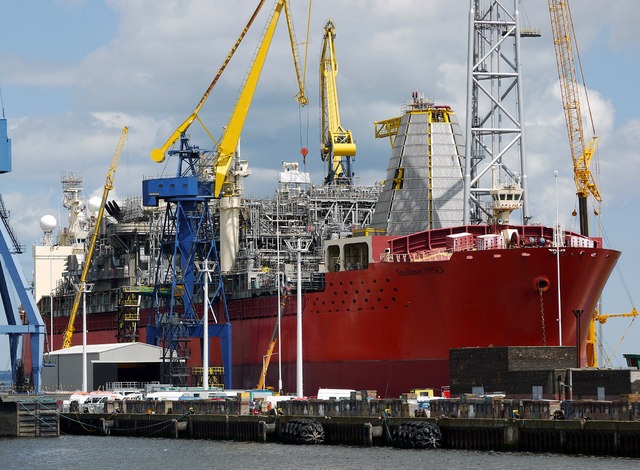523

The SeaRose FPSO is a floating production, storage and off-loading (FPSO) vessel. Constructed specifically to work at the White Rose oilfield 350 kilometres off the coast of Newfoundland, the 267m long vessel was constructed by Samsung Heavy Industries and launched in 2004. The vessel has a storage capacity of 940,000 barrels of oil, which is approximately 10 days of production. In May 2012 the vessel disconnected from the oilfield and was towed across the Atlantic to Harland and Wolff Heavy Industries in Belfast for servicing. The vessel arrived at the Belfast Dry Dock on the 6th June 2012 and, work completed, left on the 5th July to travel back towards Canada. Photo: Rossographer




